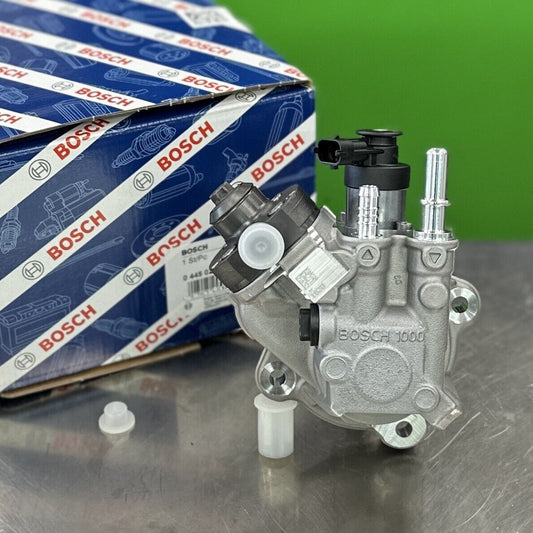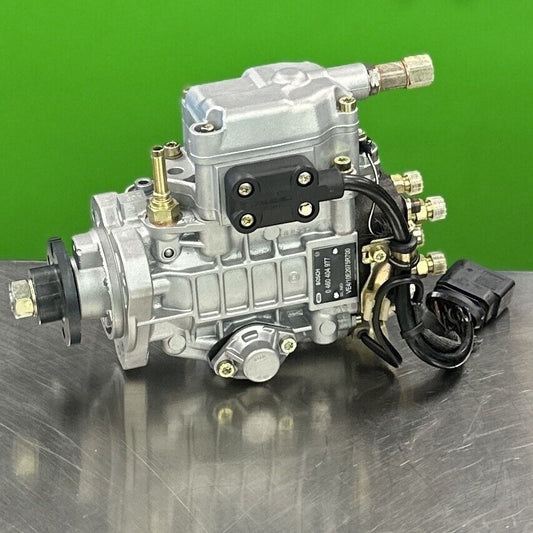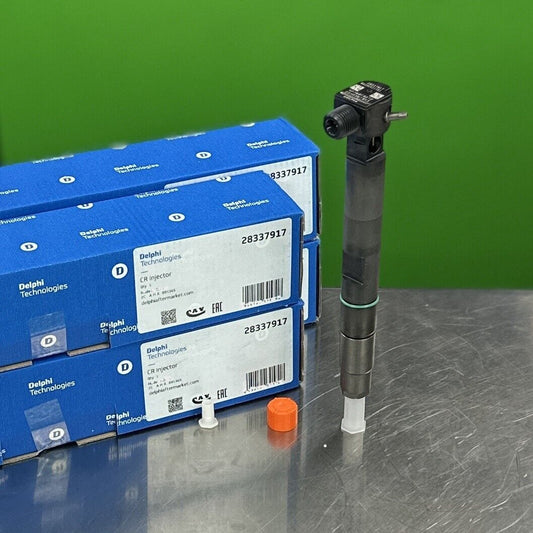Isuzu 4JJ1 Common Rail Fuel Injector Troubleshooting: Diagnosing and Solving Common Problems
Isuzu 4JJ1 common rail fuel injectors are essential components of modern diesel engines, playing a crucial role in the combustion process. When these injectors encounter issues, it can lead to a range of problems affecting the engine's performance. In this article, we will delve into the common problems associated with Isuzu 4JJ1 common rail fuel injectors and provide effective strategies for diagnosing and resolving these issues.
Understanding Common Rail Fuel Injectors
Common rail fuel injectors play a crucial role in the efficient operation of modern diesel engines, including the Isuzu 4JJ1 model. These injectors are responsible for delivering precise amounts of fuel at high pressure into the combustion chamber, allowing for optimal fuel combustion and engine performance. Unlike traditional fuel injection systems, common rail injectors store fuel at high pressure in a common rail before distributing it to individual injectors as needed.
Imagine the common rail system as a sophisticated network of fuel delivery, where each injector acts as a meticulous artist painting the perfect fuel-air mixture onto the engine canvas. The Isuzu 4JJ1 common rail fuel injectors are designed to provide improved fuel efficiency, reduced emissions, and enhanced power output compared to older fuel injection technologies.
These injectors operate based on electronic control signals, ensuring precise timing and metering of fuel delivery to match the engine's requirements at any given moment. By delivering fuel at high pressure, common rail injectors optimize combustion efficiency, resulting in cleaner emissions and better overall engine performance.
Signs of Injector Problems
When it comes to Isuzu 4JJ1 common rail fuel injectors, it's crucial to be aware of the signs that indicate potential problems. These signs can manifest in various ways, serving as red flags that something may be amiss with the injectors. By recognizing these symptoms early on, you can address the issues promptly and prevent further damage to your vehicle.
One of the most common signs of injector problems is rough idling. If you notice that your Isuzu 4JJ1 engine is idling roughly or inconsistently, it could be a sign that the injectors are not functioning properly. This can lead to poor engine performance and decreased fuel efficiency, highlighting the importance of addressing the issue promptly.
Another indication of injector issues is a loss of power in your vehicle. If you experience a significant decrease in power while driving, it could be due to faulty injectors affecting the engine's combustion process. This can result in sluggish acceleration and overall reduced performance, impacting your driving experience.
Additionally, black smoke emissions from the exhaust can be a clear indicator of injector problems. When the injectors are not delivering fuel efficiently, it can lead to incomplete combustion, resulting in the production of black smoke. Not only is this harmful to the environment, but it also signifies underlying issues that need to be addressed.
Increased fuel consumption is another sign that your Isuzu 4JJ1 injectors may be malfunctioning. If you find yourself refueling more frequently than usual or notice a sudden spike in fuel consumption, it could be attributed to inefficient fuel delivery caused by faulty injectors. Addressing this issue can help you save on fuel costs in the long run.
By paying attention to these symptoms and being proactive in diagnosing potential injector problems, you can ensure the optimal performance of your Isuzu 4JJ1 engine. Whether it's rough idling, loss of power, black smoke emissions, or increased fuel consumption, recognizing these signs early on is key to maintaining the efficiency and longevity of your vehicle.
Diagnostic Techniques
When it comes to diagnosing issues with Isuzu 4JJ1 common rail fuel injectors, employing the right diagnostic techniques is crucial for accurate problem identification and effective solutions. By utilizing a combination of visual inspection, fuel pressure testing, and electronic diagnostic tools, mechanics and technicians can pinpoint the root cause of injector problems efficiently.
Visual inspection serves as the initial step in diagnosing Isuzu 4JJ1 injector issues. By visually examining the injectors and related components for signs of wear, damage, or leaks, technicians can quickly identify any visible issues that may be affecting the injector's performance. This hands-on approach allows for a comprehensive assessment of the injector system's condition.
Furthermore, fuel pressure testing plays a vital role in diagnosing common rail fuel injector problems. By measuring the fuel pressure within the system, technicians can determine if the injectors are receiving an adequate supply of fuel. Fluctuations or irregularities in fuel pressure readings can indicate potential issues with the injectors, such as clogs or leaks, prompting further investigation.
In addition to visual inspection and fuel pressure testing, the use of electronic diagnostic tools can provide valuable insights into the performance of Isuzu 4JJ1 common rail fuel injectors. These advanced tools allow technicians to access the engine's onboard computer system, retrieve error codes, and analyze real-time data to pinpoint specific injector issues. By leveraging technology, diagnostic processes can be streamlined, leading to more accurate diagnoses and efficient repairs.
When faced with complex injector problems, technicians may also resort to conducting injector balance tests to assess the individual performance of each injector within the system. By comparing the output of multiple injectors, technicians can identify any discrepancies in fuel delivery and address imbalances that may be causing engine performance issues.
Moreover, creating a comprehensive diagnostic checklist that outlines the step-by-step procedures for inspecting and testing Isuzu 4JJ1 common rail fuel injectors can help ensure a systematic approach to problem-solving. By following a structured diagnostic process, technicians can avoid overlooking critical details and effectively address injector issues in a methodical manner.
Common Solutions
When it comes to dealing with common issues related to Isuzu 4JJ1 common rail fuel injectors, there are several common solutions that can help resolve these problems effectively. One of the primary solutions is cleaning the injectors to remove any built-up deposits or contaminants that may be affecting their performance. This can often be done using specialized cleaning solutions or equipment designed for this purpose.
If cleaning alone does not solve the problem, repairing the faulty components within the injector system may be necessary. This could involve replacing damaged seals, O-rings, or other components that are causing leaks or malfunctions. By addressing these issues, the injector can be restored to proper working condition.
In some cases, replacing the entire Isuzu 4JJ1 common rail fuel injector may be the most effective solution. This is especially true if the injector is severely damaged or worn out beyond repair. By installing a new injector, you can ensure optimal performance and efficiency in your diesel engine.
Additionally, calibrating the injectors after cleaning, repairing, or replacing them is crucial to ensure they are functioning correctly. Proper calibration helps optimize fuel delivery and combustion, leading to improved engine performance and fuel efficiency. This step is essential in maintaining the overall health of the injector system.
It is important to note that when implementing these common solutions, it is advisable to follow manufacturer guidelines and recommendations to ensure proper installation and operation of the Isuzu 4JJ1 common rail fuel injectors. By taking the necessary steps to address injector issues promptly and effectively, you can prevent further damage and maintain the optimal performance of your diesel engine.
Preventive Maintenance Tips
When it comes to ensuring the longevity and optimal performance of your Isuzu 4JJ1 common rail fuel injectors, preventive maintenance plays a crucial role. By implementing a few simple yet effective practices, you can prevent potential issues from arising and save yourself from costly repairs down the line.
One of the essential preventive maintenance tips for Isuzu 4JJ1 injectors is to regularly inspect and clean the fuel system. Over time, dirt, debris, and contaminants can build up in the injectors, leading to clogs and decreased efficiency. By cleaning the injectors at regular intervals, you can maintain smooth operation and prevent blockages.
Monitoring fuel quality is another key aspect of preventive maintenance. Using low-quality or contaminated fuel can significantly impact the performance of the injectors and the engine as a whole. Ensure that you are using fuel that meets the manufacturer's specifications to avoid potential issues.
Additionally, keeping up with regular oil changes is crucial for the overall health of your Isuzu 4JJ1 injectors. Clean oil helps lubricate the injectors and the entire fuel system, reducing friction and wear. Make sure to follow the recommended oil change intervals to maintain optimal performance.
Implementing a fuel additive into your maintenance routine can also help keep your Isuzu 4JJ1 injectors in top condition. Fuel additives are designed to clean and protect the fuel system, including the injectors, by removing deposits and preventing corrosion. Choose a high-quality additive and follow the manufacturer's instructions for best results.
Regularly checking for leaks in the fuel system is another preventive maintenance tip that can help you catch potential issues early on. Leaks can lead to a loss of fuel pressure and affect the performance of the injectors. Inspect the fuel lines, connections, and seals for any signs of leaks and address them promptly.
Lastly, following the manufacturer's maintenance schedule is essential for ensuring the longevity of your Isuzu 4JJ1 injectors. Regular servicing and inspections by qualified professionals can help identify and address any potential issues before they escalate, saving you time and money in the long run.
By incorporating these preventive maintenance tips into your routine, you can keep your Isuzu 4JJ1 common rail fuel injectors in optimal condition and enjoy smooth and efficient performance for years to come.
Frequently Asked Questions
-
Q: What are the common signs of Isuzu 4JJ1 common rail fuel injector problems?
A: Common signs of injector issues include rough idling, loss of power, black smoke emissions, and increased fuel consumption.
-
Q: How can I diagnose problems with Isuzu 4JJ1 common rail fuel injectors?
A: Diagnostic techniques include visual inspection, fuel pressure testing, and the use of electronic diagnostic tools to identify issues effectively.
-
Q: What are some common solutions to Isuzu 4JJ1 injector problems?
A: Common solutions include cleaning, repairing, or replacing faulty components to restore optimal performance.
-
Q: What preventive maintenance tips can help extend the lifespan of Isuzu 4JJ1 common rail fuel injectors?
A: Regular maintenance practices such as using high-quality fuel, keeping the fuel system clean, and following manufacturer recommendations can help prevent future problems and extend the lifespan of the injectors.



